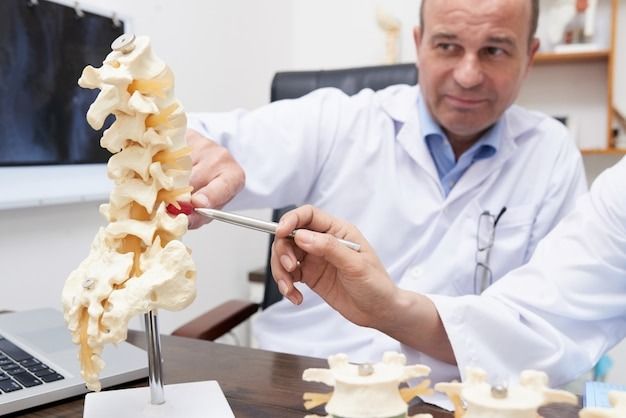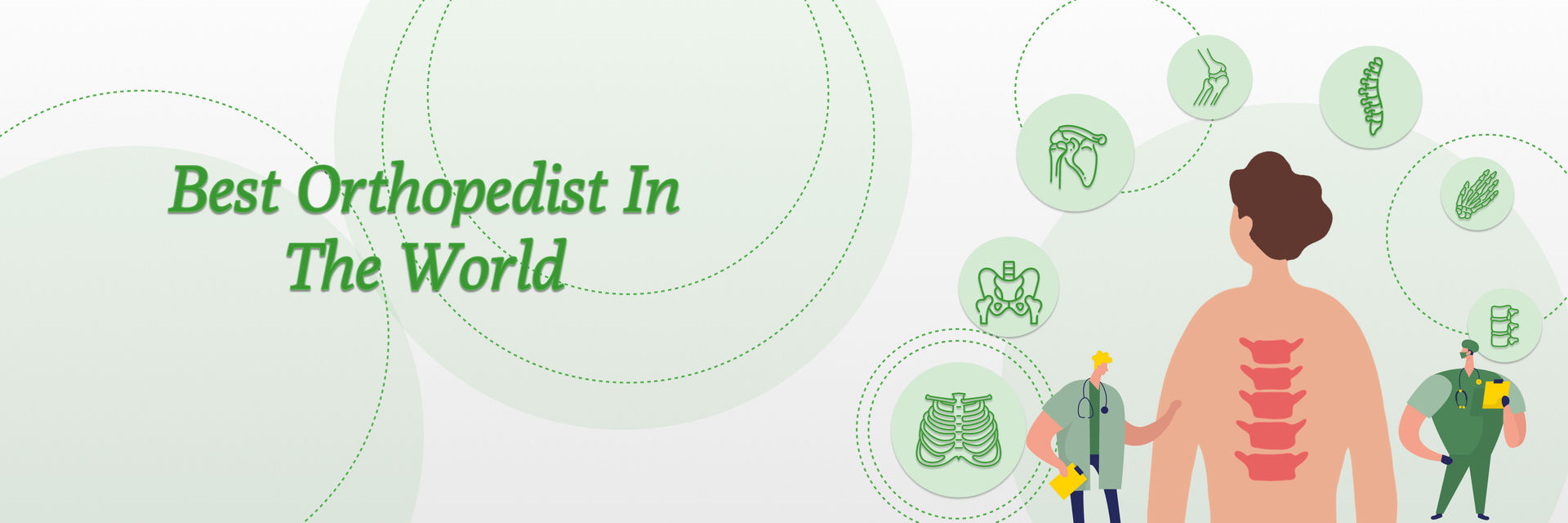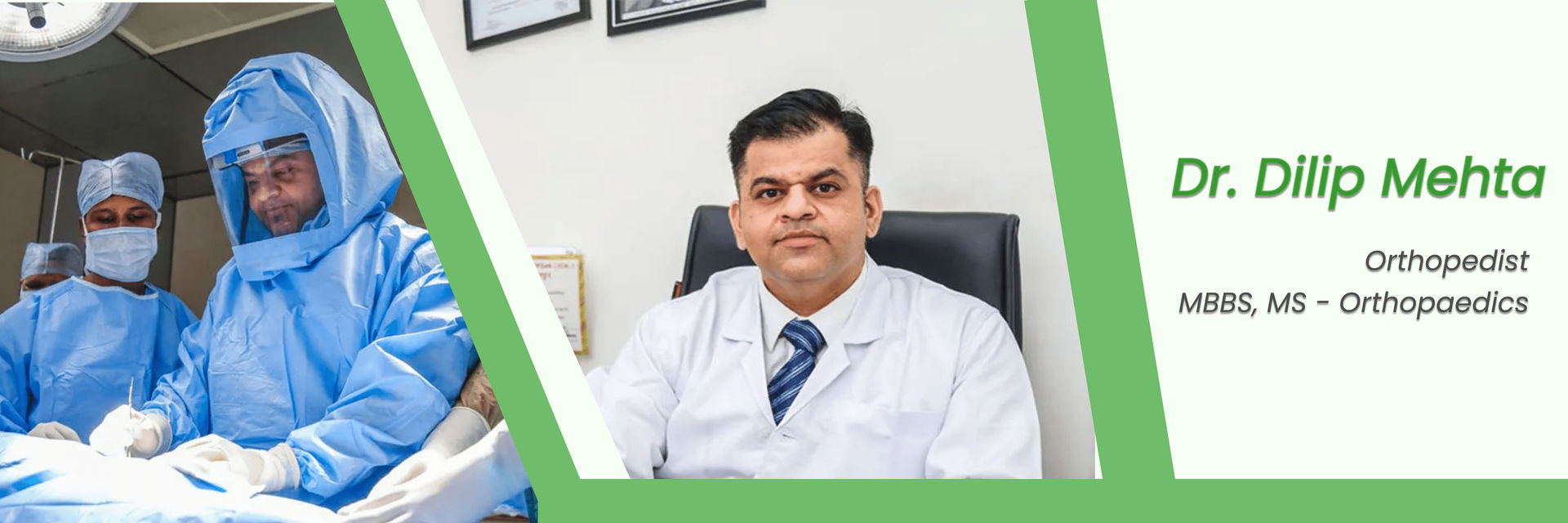Overview
Avascular necrosis (AVN) is sometimes called osteonecrosis. It is a condition characterized by death of bone tissue. This happens due to lack of blood supply to the tissues. It most commonly affects the hip joint. AVN can be a result of trauma, some kind of medical issues or certain medications. The treatment can require hip replacement in severe cases.

Hip replacement is also known as total hip arthroplasty. It is a surgical procedure where a damaged or diseased hip joint is replaced with an artificial joint or prosthesis. This is typically done to relieve the pain. It helps in improving function in people who have severe hip arthritis.
But what happens as AVN progresses? Let's find out.
Take charge of your health and your life. Contact us today!
What are the different stages of AVN?
AVN initially does not show any kind of symptoms. As a result, segmental collapse can occur even without the patient being aware of it. As the disease advances you can notice stiffness in the hip joints. As a result, there is a visible limp in the person’s gait. Later, you can feel pain in areas like legs, buttocks, groin, and thigh.

There are 4 stages of AVN. They are as follows:
| Stage 1 | |
| Stage 2 |
|
| Stage 3 |
|
| Stage 4 |
|
What is the need of hip replacement after AVN?
AVN when in advanced stages can lead to joint collapses. Those who do not have hip decompression surgery would need a total hip replacement after AVN.
Hip replacement after AVN is necessary to alleviate pain. It is important to restore function, improve quality of life and prevent further joint damage.
Does hip replacement cure avascular necrosis?
Hip replacement surgery does not cure avascular necrosis (AVN) itself. AVN is a condition characterized by the death of bone tissue. This is due to lack of blood supply. Hip replacement surgery aims to address the symptoms and functional limitations caused by AVN.
During hip replacement surgery, the damaged bone and joint are replaced with an artificial one. This provides pain relief and restores mobility. However, the underlying cause of AVN, that is poor blood supply or any medical conditions, are not addressed.
Hence, to fully cure AVN, it is important to cure the underlying cause and prevent AVN from affecting other joints of the body.
Looking for alternatives to hip replacement? Keep reading.
Are there any non-surgical alternatives to hip replacement for AVN?
Yes, there are a few non-surgical alternatives to hip replacement for AVN. The alternatives include Regenerative medicine techniques.

They are mentioned as below:
- Prolotherapy injections: It is a dextrose injection. This involves administration of a simple sugar that starts healing the soft damaged tissues. This treatment targets various areas including hip ligaments and hip cartilage. Dextrose injection provokes healing response and repairs the tissues. As a result, it improves the functioning of hip structures.
- Platelet Rich Plasma injections (PRP Therapy): This is a treatment method that uses the patient’s own blood platelets. This therapy effectively addresses the soft tissue injuries and conditions like hip osteoarthritis.
- Stem Cell Therapy: Stem cell therapy uses cells derived from the patient's own bone marrow. This initiates the process of tissue regeneration. This treatment is typically used for individuals with substantial hip damage. However, this technique is used only after ensuring that the person has genuine chances of benefitting from the therapy. And that this treatment would save them from having a hip replacement surgery.
Don't miss this important point: the long-term restrictions after hip replacement.
Take charge of your health with the best treatment. Book your consultation now.
Are there permanent restrictions after hip replacement?
Hip replacement surgery is a very delicate surgery for the body. With the surgery, there are many restrictions. Initially, for almost three months after the surgery, activities like hiking, biking and swimming are restricted.

The only physical restriction in the long term is running. This is one of the pr=permanent restrictions after hip replacement because the artificial joints are naive and may not support running. Running may not support the hip joint, and you may require another hip replacement surgery.
Expected outcomes of hip replacement surgery for AVN

The recovery from the hip replacement for AVN varies with individuals. Post surgery, most people see positive results within three months.
Following the procedure, you can expect to see continued improvements throughout the year.
You can expect the joint pain to alleviate and feel an enhanced range of motion in the hip.
However, you must keep in mind that many of the activities that you could do before the surgery would be restricted.
You cannot engage in high-impact activities like running or basketball. Although, with time you can pursue low-impact activities like swimming, golfing or cycling.
According to Derek Geldrich, physiotherapist at Gravity Physio,
“After hip replacement surgery, there might be restrictions on high-impact activities like running or jumping, and depending on the type of surgical approach (lateral approach namely) some restriction on hip flexion, abduction and rotation may be enforced. Your surgeon will provide specific guidelines, typically for several months after the surgery.”
It's time to uncover the impressive success rates of AVN surgery.
What is the success rate of AVN surgery?

Hip replacement surgery after AVN yields significantly improved outcomes as compared to conservative treatments. The success rates of hip replacement for AVN range from 34% to 95%. The highest success rates are typically observed in patients with early-stage avascular necrosis (AVN) before the collapse of the affected bone.
What is the long term outlook?
The long term outlook for hip replacement for AVN is overall positive. It provides significant pain relief, functional improvement, and better quality of life.
Although, regular follow-ups and lifestyle modifications are necessary for long-term success. You should always consult with the healthcare provider with regard to post-surgical restrictions, since prosthetic joint wear is possible over time. Restrain from high impact activities.
According to Derek,
“Hip replacements for Avascular Necrosis (AVN) patients typically last 15-25 years, but they can wear out over time due to factors like activity level and implant type. If alcohol intake was part of the original cause and not ceased - this can reduce the life of the replacement. Sadly, the failure rate for AVN hip replacements is typically higher than for osteoarthritis hip replacement.”
Your well-being is our priority - call us to book your appointment today.






